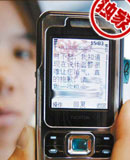2010年6月英语六级听力篇章2原文(昂立)
以下是2010年6月19日四级答案听力篇章第二篇的解析:
Huang Louise, a junior geology major, decided to give aninformative speech about how earthquakes occur. From his audience analysis, helearnt that only two or three of his classmates knew much of anything aboutgeology. Huang realized then that he must present his speech at an elementary level and with a minimum ofscientific language. As he prepared the speech, Huang kept asking himself:“ how can I make this clear and meaningful to someone whoknows nothing about earthquakes or geological principles?” Since he was speaking in the Midwest, he decided tobegin by noting that the most severe earthquake in American history took placenot in California or Alaska, but at New Madrid, Missouri in 1811. If such anearthquake happened today, it would be felt from the Rocky Mountains to theAtlantic Ocean and would flatten most of the cities in the Mississippi Valley.That, he figured, should get his classmates’ attention. Throughout the body ofthe speech, Huang doubt only with the basic mechanics of earthquakes andcarefully avoided technical terms. He also prepared visual aids diagramming photolines so his classmates wouldn’t get confused. To be absolutely safe, Huangasked his roommate who was not a geology major to listen to the speech. “Stopme”, he said, “Anytime I say something you don’t understand”. Huang’s roommatestopped him four times. And at each spot, Huang worked out a way to make hispoint more clearly. Finally, he had a speech that was interesting and perfectlyunderstandable to his audience。
Question 30: What did Huang Louise learn from theanalysis of his audience?
Question 31: How did Huang Louise start his speech?
Question 32: What did Huang ask his roommate to do whenhe was making is trial speech?
来源:昂立教育
特别说明:由于各方面情况的不断调整与变化,新浪网所提供的所有考试信息仅供参考,敬请考生以权威部门公布的正式信息为准。
网友评论
更多关于 四六级 作文 真题 的新闻
- 2010年6月英语六级作文范文及点评(文都) 2010-06-19 18:14
- 2010年6月英语四级考试完整答案(文都) 2010-06-19 18:12
- 2010年6月英语六级听力篇章3原文(昂立) 2010-06-19 18:09
- 2010年6月英语六级听力篇章1原文(昂立) 2010-06-19 18:08
- 2010年6月英语六级复合式听写原文(昂立) 2010-06-19 17:54
- 2010年6月英语六级听力短对话解析(昂立) 2010-06-19 17:53:44 新浪教育
- 2010年6月英语六级听力长对话原文(昂立) 2010-06-19 17:52:27 新浪教育
- 2010年6月英语六级作文评析及范文(沪江) 2010-06-19 17:42:30 沪江英语
- 2010年6月英语六级听力短对话原文(昂立) 2010-06-19 17:37:53 新浪教育





